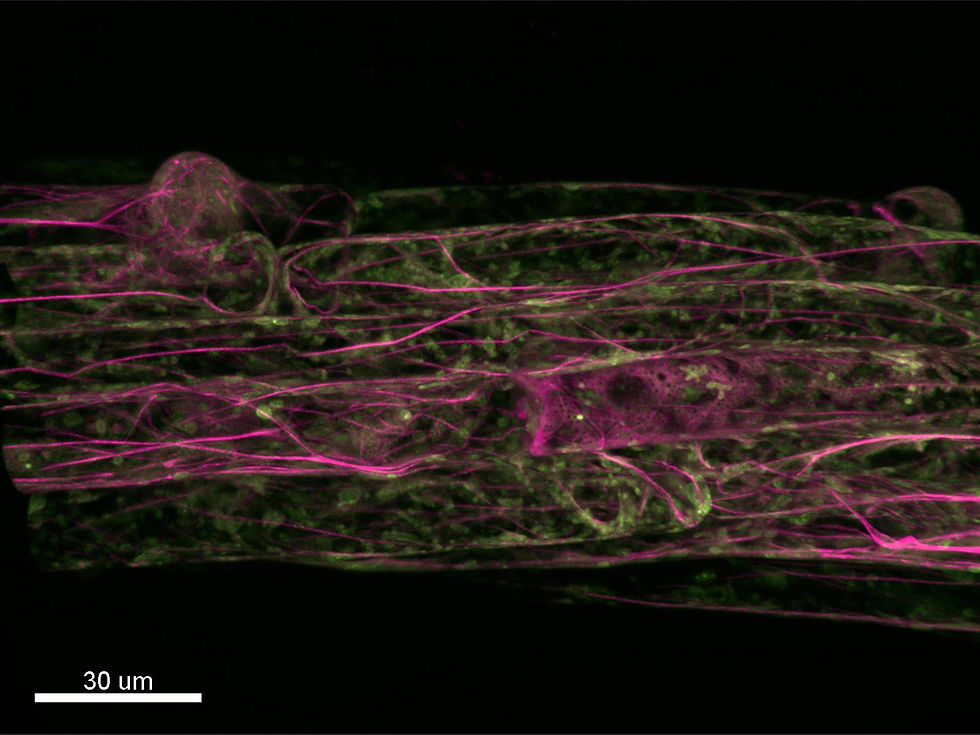

Welcome to the Michaeli lab
cell biology, biochemistry, and physiology of
plant senescence and ripening

ABOUT
The Michaeli lab is part of the Institute of Postharvest and Food Sciences @Volcani Institute (Agricultural Research Organization), which is situated at the heart of Israel, at the north tip of Rishon LeZion (only 15 minutes drive from Tel-Aviv).
Our hope to delay aging goes back to the dawn of humanity. Plants, especially trees, are masters of extended lifespan, some reaching hundreds and even thousands of years.
Understanding plant aging is critical for our environment, agriculture and food security.
Senescence and Ripening of Plant Produce for Increased Food Security
One of the current grand challenges of humanity is to maintain global food security for an ever-growing population, while global temperatures are rising. On one hand, scientists try to find ways to increase crops yield. However, this is only part of the equation. The other important aspect is the prevention of food loss, which may be achieved by delaying plant produce postharvest senescence and regulating fruit ripening.
Research
Leaf Senescence and Fruit Ripening Regulation by Cellular Degradation Pathways
Biosynthesis (of metabolites, macro-molecules, cellular organelles, etc) is essential for all life forms on earth. In parallel, degradation mechanisms must ensure the dismantling and recycling of these substances for proper cellular homeostasis (energetic balance). When this balance is interrupted, senescence, aging, disease, and eventually death occur. Plants (and other eukaryotes) possess several cellular degradation pathways. Two of these include autophagy and the ubiquitin-proteasome system (UPS). These pathways exhibit a major role in lifespan modulation. For instance, autophagy deficiency results in earlier plant senescence, whereas constitutive autophagy prolongs lifespan.
We will identify molecular mechanisms that govern fruit ripening and leaf senescence, and harness our knowledge to increase plant produce lifespan (shelf life).
Techniques:
Molecular Biology, Leaf and Fruit Physiology analysis, Biochemistry, Genetics (including gene editing), Proteomics and Live Microscopy Imaging.
Our Experimental subjects:
Arabidopsis (model organism), Rocket leaves (crop), Tomato (crop and model) and Banana fruit (crop).

Simon Michaeli, Ph.D.
Group leader
Simon obtained his Ph.D. at Tel-Aviv University, where he studied the cross-membrane transport of GABA in Arabidopsis. Simon then joined the Weizmann Institute of Science in Rehovot as a postdoc, where he identified selective autophagy of chloroplast proteins during leaf senescence. Simon then moved to France (CNRS Montpellier and Strasbourg) to investigate how viruses evolved to subvert autophagy. Later, Simon returned to the Weizmann Institute, where he was involved in developing methods for advanced live microscopy imaging of plants and phytoplankton. Today, Simon is a group leader at the Postharvest Department of Volcani Institute, trying to solve some unknown mysteries of leaf senescence and fruit ripening with the rest of the gang listed below. Being also a father of three, Simon`s main current hobby is limiting his kids' screen time.

Sharon Alkalai-Tuvia
Lab manager
More info to be added soon...

Hala Israelov
Postdoctoral Fellow
Hala completed her PhD at Tel-Aviv University. Her doctoral research contributed to the understanding of Indole-3-Carbinol signaling in the model plant Arabidopsis thaliana by revealing new components involved. Hala mainly focused on members of the protein kinase family and their roles in biotic and abiotic stresses.
Her ambition is to utilize her scientific knowledge and experience to contribute to a more sustainable world.
In addition to her passion for science, Hala enjoys baking and is known among her family and friends for her special cakes!

Dr. Jyoti Devi
Postdoctoral Fellow
A Plant Biotechnologist by profession. I enjoy dipping into stories that connect to my love of science and eventually satisfy end-users. I completed my Ph.D. from CSIR-IHBT Palampur, India, where I worked on adventitious root culture technology to produce industrially important red naphthoquinone pigments from the medicinal plant Arnebia euchroma. At the moment, I am interested in the role autophagy plays in fruit ripening

Dr. Pradeep Kumar Pathak
Postdoctoral Fellow
Pradeep completed his Ph.D. at the National Institute of Plant Genome Research, New Delhi, India, where he worked on the role of hypoxia-induced Nitric oxide in plant protection against Pathogens. Currently, Pradeep is interested in deciphering the autophagy-ethylene crosstalk.

Dorothy Matiki
M.Sc. student
Dorothy earned a BSc in Nutrition and Food Science from Lilongwe University of Agriculture and Natural Resources, Malawi. Currently, Dorothy is pursuing a Master's degree in Nutritional Sciences at the Robert H. Smith Faculty of Agriculture, Food, and Environment. She has a strong passion for food quality and aims to contribute to understanding and improving food products. Currently, she focuses on studying the impact of autophagy induction on fruit ripening, quality, and shelf life.
Apart from academia, Dorothy enjoys singing and exploring new destinations.

Meital Saad
M.Sc. student
Curious by nature and enjoy helping others. Looking forward to conducting research in the lab. My interest in science started with a personal desire to heal and with a fascination for understanding how biological systems work.
I’m here to learn, explore, and contribute to discoveries that can make a difference.

You?
Potential student/postdoc
We are constantly looking for curious students to join our group.
If you are interested in doing your M.Sc. or Ph.D. training with us, don't hesitate to contact Dr. Simon Michaeli: simonm@volcani.agri.gov.il.
GET IN ToUCH!
contact
Dept. of Postharvest Science, Institute of Postharvest and Food Sciences, Volcani Institute, ARO, P.O.B 15159, HaMaccabim Road 68, Rishon LeZion 7505101, Israel.
Tel: +972-(0)3-968-3618

